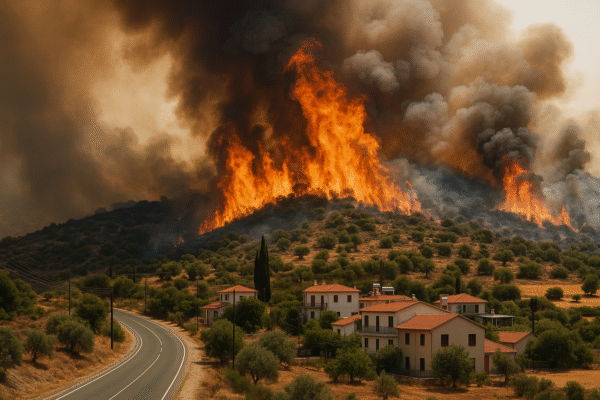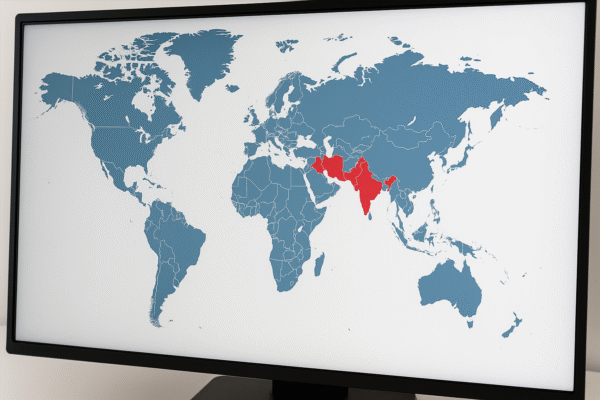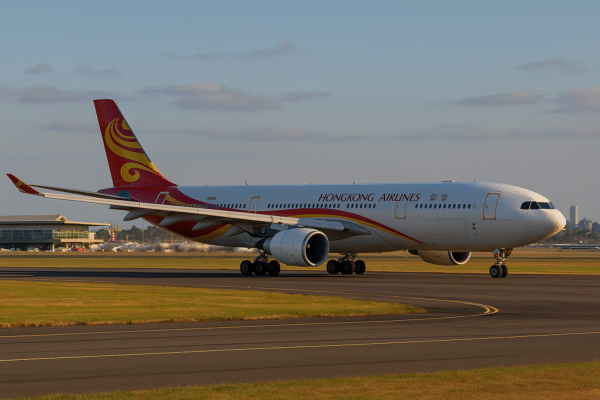In response to escalating international security threats, the Government of Canada has issued an expanded travel advisory urging citizens to exercise a high degree of caution when visiting several popular global destinations. Countries now flagged under the updated guidance include France, Spain, Mexico, Denmark, Oman, and the United Kingdom, each experiencing heightened risks related to terrorism, organized crime, political instability, and civil unrest.
The advisory, issued by Global Affairs Canada, highlights a growing global trend of security volatility. Canadian travelers are being urged to stay vigilant, monitor local developments, and secure comprehensive travel insurance that includes emergency medical coverage, trip cancellations, and evacuation support.
France: Heightened Terror Threats and Social Unrest
France continues to battle terrorist threats, amplified by its active participation in international military operations and its symbolic importance within Europe. The nation’s Vigipirate plan remains at its highest alert level, “urgence attentat,” with security reinforcements across airports, metro stations, and major landmarks such as the Eiffel Tower and Notre-Dame Cathedral.
Simultaneously, the country is witnessing widespread protests and strikes, notably in Paris and Marseille, complicating public transport and safety planning for tourists. Travelers are advised to avoid demonstrations and maintain situational awareness in crowded areas.
Spain: Public Safety and Pickpocketing Concerns
Spain remains a top destination for Canadians, but authorities warn of increasing petty crime, particularly in tourist hubs like Barcelona’s La Rambla and Madrid’s Puerta del Sol. The threat of terrorism persists due to Spain’s geographic proximity to North Africa and historic extremist networks operating in Europe.
Visitors are also cautioned about rising rates of scams, thefts, and group-based pickpocketing, especially in public transit systems and during festivals. Spain’s national police have advised tourists to use anti-theft bags and avoid displaying valuables.
Mexico: Organized Crime and High-Risk States
While Mexico welcomes millions of tourists annually, the Canadian advisory emphasizes the uneven security landscape. Cartel-related violence, kidnappings, and armed robberies are particularly severe in states such as Guerrero, Jalisco, Michoacán, and Tamaulipas, where Canadians are advised to avoid non-essential travel.
Even resort areas like Cancún and Los Cabos have seen incidents involving tourist-targeted violence and criminal infiltration. Travelers are encouraged to register with Canadian consulates, avoid traveling at night, and maintain contact with local authorities when possible.
Denmark: Rising Gang Activity in Urban Areas
Denmark, often regarded as one of the world’s safest nations, has experienced an uptick in gang-related violence, particularly in Copenhagen neighborhoods like Nørrebro and Freetown Christiania. Incidents of targeted shootings and drug-related turf wars have prompted increased police presence and surveillance.
Additionally, pickpocketing and bag-snatching are becoming more frequent in busy spots like Tivoli Gardens, Nyhavn, and public transit lines, often perpetrated by groups targeting distracted tourists.
Oman: Border Tensions with Yemen
Oman has maintained a reputation for neutrality in the Middle East, but its southern border with Yemen poses a risk due to ongoing regional conflict. Canada’s advisory strongly recommends avoiding areas within 10 kilometers of the Yemen border, citing potential spillover violence and cross-border attacks.
Travelers are urged to remain alert in Salalah and other southern cities, where temporary disruptions to transport and demonstrations may occur. However, the capital Muscat and coastal areas generally remain stable and hospitable for tourism.
United Kingdom: Persistent Terrorism Risk and Civil Protests
The UK continues to face threats from extremist groups, particularly in central London. While significant attacks have declined in recent years, the national threat level remains “substantial,” indicating that an attack is likely.
Additionally, major UK cities have witnessed large-scale protests and climate demonstrations, particularly around government sites, causing public disruptions and occasional confrontations with police. Tourists are advised to avoid protest zones and to follow updates from the Metropolitan Police and Transport for London (TfL).
Why Canada’s Travel Advisories Matter Now More Than Ever
Canada’s travel advisories, available at travel.gc.ca, are updated regularly to reflect current global events. These advisories not only inform travelers of on-the-ground risks but also assist with insurance eligibility and emergency consular support.
According to the Canadian Air Transport Security Authority (CATSA), over 20 million Canadians travel internationally every year, making accurate, real-time travel guidance a critical public service.
The government recommends travelers:
- Enroll in the Registration of Canadians Abroad program.
- Purchase travel insurance with emergency medical evacuation.
- Stay connected with local embassies or consulates.
- Monitor local news and follow local authority guidance.
- Avoid high-risk neighborhoods, especially during periods of unrest.
Final Thoughts
The updated Canadian travel advisories reflect a rapidly changing global security climate. While international travel remains feasible and enriching, the risks tied to terrorism, crime, and political instability require Canadians to plan carefully and stay informed.
Destinations like France, Spain, Mexico, Denmark, Oman, and the UK remain world-renowned for their culture, beauty, and tourism appeal. However, understanding the local security context is now more essential than ever.
By following Canadian government advice, using common sense, and staying prepared, travelers can continue to explore the world with confidence—even in uncertain times.
For more travel news like this, keep reading Global Travel Wire






















